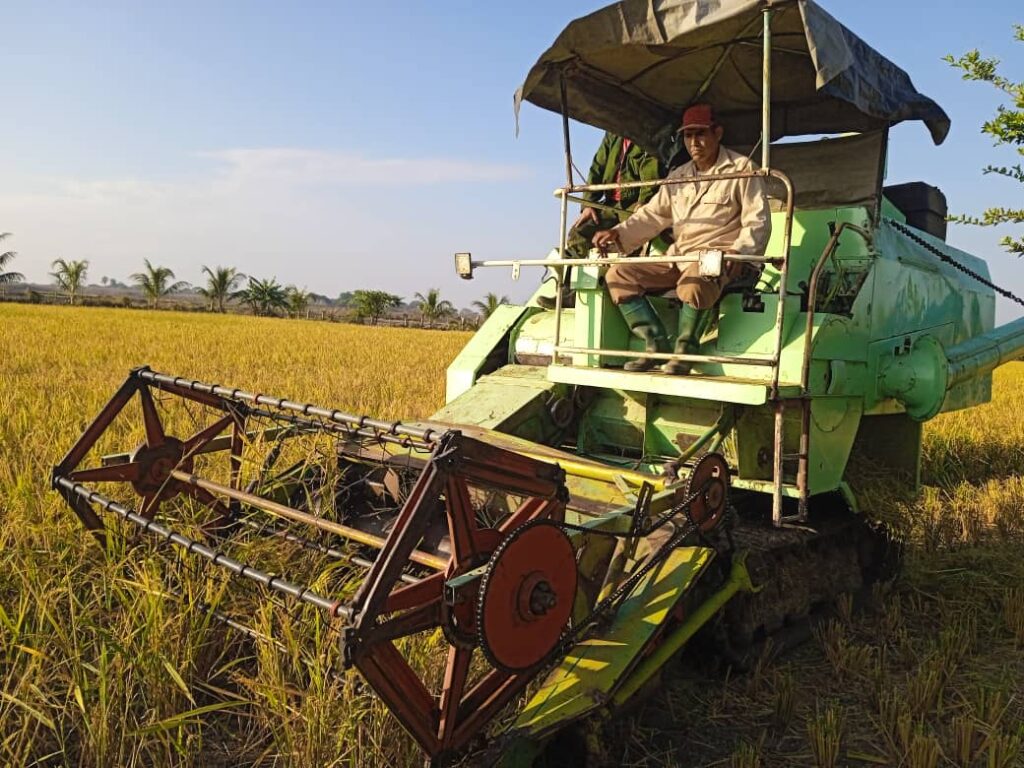![]()
Valdés Mesa referred to the responsibility of the municipalities in the self-sufficiency of certain items and the delivery for the national balance

Camagüey, April 5th.- The member of the Political Bureau of the Communist Party of Cuba and vice president of the Republic, Salvador Valdés Mesa, evaluated in Camagüey programs focused on food production, and paid special attention to those related to increasing results. in the rice line.
In the municipality of Florida, the vice president spoke at the San Juan del Centro farm, of the Camilo Cienfuegos Credit and Services Cooperative, with the rice producer Lázaro Puerta Fundora, with good experiences that must be multiplied to contribute to the country’s purpose of increasing offers of food and lower prices.
Accompanied by the member of the Central Committee of the Party and first secretary in the province, Federico Hernández Hernández, and the governor Jorge Enrique Sutil Sarabia, Valdés Mesa urged growth in areas for obtaining cereal, based on better use of resources available endogenous resources, including water reservoirs; and urged compliance with production cycles in accordance with the conditions of nature.
Given the high incidence of fertilizers on costs, he advocated making greater use of biological products to control pests and diseases, while ratifying the priority of the application of science and technology to increase yields and lower the high prices that affect the people.
In the dialogue with Lázaro Puerta Fundora, the Vice President learned about the important supply of seeds from the farm to other rice growers in the territory, in addition to the sale of grain to some social institutions.
Subsequently, Valdés Mesa appreciated the strengths that result from the alliances between the Ruta Invasora Agroindustrial Grain Company and the small private companies Karai and Mauro, both based in Havana, which among other benefits provide technical assistance, technological packages and logistics.
One thousand one hundred and 11 hectares are planted in the Rodolfo Ramírez Esquivel Basic Cooperative Production Unit, in southern Florida, with a yield that can approach six tons per hectare, estimated Michel Bayate Camejo, general director of the aforementioned socialist state company, actor fundamental of the Cuban economy.
The Vice President also referred to the need to save energy carriers, specifically fuel, and highlighted the positive aspects of increasing the livestock mass there and the efficient exploitation of the land, as part of the essential diversification.
In his exchanges in Camagüey, the member of the Political Bureau carried out analysis about the imperative of fulfilling the plans and contributing beyond what was planned, taking into account the high demand of the population that is not satisfied, and with an eye on the summer stage, in which larger quantities of offers are required.
In that sense, he referred to the responsibility of the municipalities in the self-sufficiency of certain items and the delivery for the national balance; and also spoke out for rigor in confronting price violations and the strengthening of institutions in the country.
In Florida, one of the areas of the nation with the greatest roots in rice production, the Cuban Vice President approached positive practices, in the constant occupation of the country’s leadership to look for alternatives in order to substitute imports and guarantee higher food figures.
(Radio Cadena Agramonte)